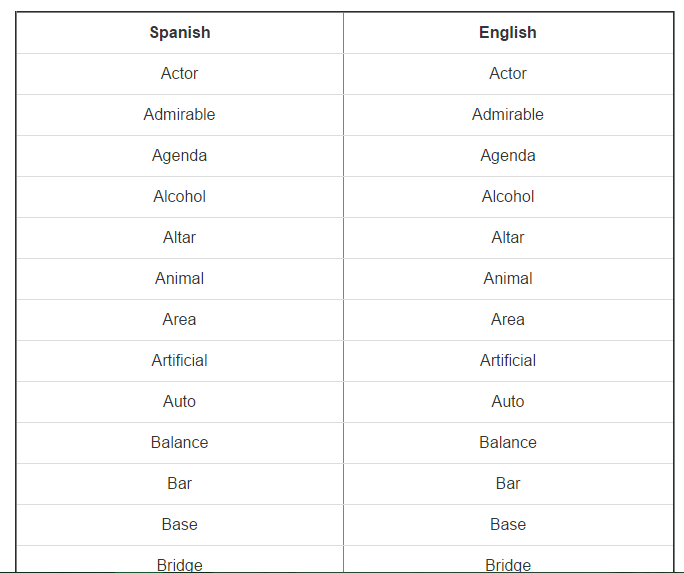Psychological fun to learn languages
Why are so many people fond of learning languages?
Upon first perusal it may seem straightforward – an exciting new culture, motivation leading to memory, and – fun!
Motivation:
A key factor in learning a language.
Where does this motivation come from?
People may choose to learn languages due to a career change, a job prospect, a home relocation or more.
Let’s dig into the psychological underbelly of it.
The Heritage Cycle by Simon Thurley explains that by understanding a culture, people will then value it.
Once they value it, value begets care, and subsequently they begin to enjoy it.
And so it goes!
To learn languages… Is more than one necessary?
Is it really necessary to speak more than one foreign language nowadays?
For whom?
In most of Europe and Asia, each country has its own national and first language – such as Spanish, or Chinese. English comes second.
Some countries have English as a first language, such as Australia and Canada.
For people within these different countries to communicate, they need a common language to converse in.
Singapore, for example, provides a bilingual education by law.
Being able to speak more than one language makes it easier to travel, work, and explore other countries and cultures.
Which foreign language to focus on?
Here are 5 deciding factors to help you choose.
1. Learn languages for your career
Looking to open doors with a second or third language under your belt?
International job opportunities are rampant for those able to communicate with clients in their native tongue.
Here are the top languages to consider:
Mandarin Chinese
The world’s most spoken language, while taking into consideration the number of native speakers, is spoken by 16% of the world’s population.
A recent British Council report placed Chinese as one of the future’s top 10 most important languages
While Mandarin Chinese is the official language of China, there are many dialects written in the same characters, such as Cantonese and Shanghainese.
However- once you master Mandarin, you can easily pick up the different dialects.
The United States Foreign Service Institute states an English speaker would take an average of 2,200 classroom hours to master.
What are you waiting for?
Spanish
Spanish is considered one of the easiest languages for a native English speaker to learn.
The language’s prominence in the U.S.A, South America and Europe has boosted the number of its speakers greatly.
It is the third most spoken language in the world after English, with 427 million native speakers and 91 million non-native speakers.
While the grammar and sentence structure differ, English and Spanish share Latin roots.
This means they share thousands of cognates – exactly similar words in both sound and meaning.
Here are a few examples:

Chinese and Spanish can get you up the job ladder due to the large number of speakers and the constant need of supply and demand.
That doesn’t mean they’re the only ones.
2. Learning the language of a country
Looking for greener pastures?
It’s best to be fluent before relocation.
Let’s look at some languages great for business.
Russian
Russia – where the wealthy dwell!
Its lucrative investment opportunities entice many to this affluent land.
However, while familiar with international business relations, many Russian businesspeople do not speak English well.
This means most would prefer to communicate with fellow Russian-speakers, rather than through a translator.
That takes the sincerity out of it!
And you know how important sincerity is when doing business.
Speaking Russian is key to efficient communication with your new clients.
While the cyrillic alphabet may be daunting, once learnt, you can then accurately pronounce most words. It might help if you know the Greek alphabet, they share some similarities!
Russian has a simpler sentence structure than English.
Look:
In English, we would say “can you please pass me the salt?”
However, in Russian, you can say “give salt please”.
This simple structure helps learners, as understanding and speaking can be easier.
French
Did you know French was once the international lingua franca?
This means it was a common language that people all over the world could converse in, before English came into prominence.
Many companies still prefer to communicate in French, such as in African and Mediterranean countries, and of course – France.
Like Spanish and English, French and English have many cognates as well.
In fact, you already know some:
Montage, bourgeois, brochure, chauffeur, lingerie, and encore.
That’s gotten you started.
There are about 335 million speakers – will you be the next one?
3. Your native language
Depending on your native language, there will be a different level of difficulty in learning different languages.
Chinese speakers may find it easier to learn languages like Japanese or Korean and vice versa.
These three languages all utilize Chinese characters.
This is because Chinese is the oldest writing system in East Asia, influencing many other writing systems.
Over time, Korea and Japan developed their own characters while retaining some Chinese ones.
While differing in pronunciation, the characters still share a similar meaning.

Likewise, English speakers may find it easier to learn Spanish or French as opposed to Russian or Japanese due to the way the languages are written.
That doesn’t mean you can’t try!
4. Personal attitude
After all, a language should be learned at your own pace.
Regardless of the reasons, learning a language should be fun!
If you are up for a challenge, delve into an alphabet or writing system foreign to you.
Learn Korean as an Englishman, or Thai as a Frenchman!
If you’d prefer something closer to home, languages such as Spanish or French share a significant amount of similarities with English to make it easier to pick up and pronounce.
Besides language exchange apps and lessons, you might find translation technology useful.
Hold on to that thought:
Will translation technologies make learning new foreign languages unnecessary?
Without a doubt, no.
Have you heard of the phrase “lost in translation”?
As we’ve gone through a list of different languages, it is evident no two languages share the same sentence structure.
Sentence structure is crucial in conveying your exact meaning.
Let’s go back to our previous Russian-English example:
In English, we would say “can you please pass me the salt?”
However, in Russian, you can say “give salt please”.
This may come across as rude, whereas it is perfectly polite.
Each language has its own idiosyncrasies and metaphors unique to it.
What’s more, natural human conversation gives you a different meaning with each different point of emphasis.
Here’s another example:
Can you please pass me the salt?
Can you please pass me the salt?
Can you please pass me the salt?
Can you please pass me the salt?
While translation technologies may provide the gist of the matter, there’s a fairly long time before they are able to replace natural human conversation.
Learning various languages will still be a relevant and necessary skill for the years to come.
In conclusion…
With the advancement of technology providing virtual tandem language exchange, learning through apps, and chatbots, learning a new language is easier than ever.
Our forefathers never had it this easy!
As relations grow stronger internationally, people also want to communicate better and share their cultures.
If you learn languages, you increase your job prospects, the dimensions of your social circle, and the knowledge gained.
Where is the downside?
There isn’t one!
❝If you talk to a man in a language he understands, that goes to his head. If you talk to him in his own language, that goes to his heart.❞
‒Nelson Mandela




